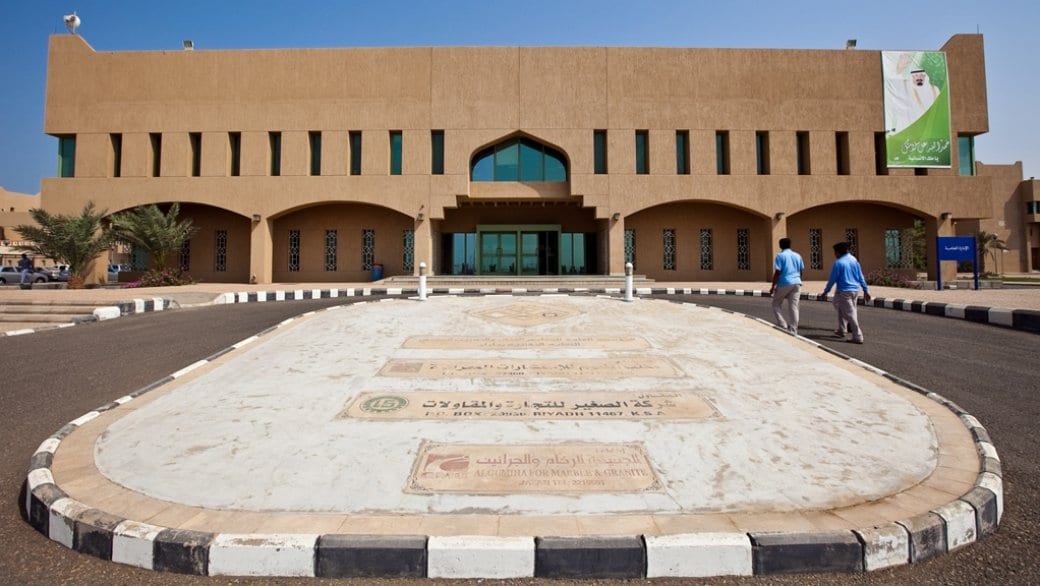Here’s some recent news out of Saudi Arabia: four men were arrested for being gay.
The Committee for the Promotion of Virtue and the Prevention of Vice, the country’s religious police, arrested the men after they allegedly had a marriage ceremony a few days earlier south of Riyadh. The officers found video footage of the ceremony and the party afterwards, which, if history is any guide, could lead to mass arrests for homosexuality.
That’s what happened in 2011 in Jazan, when 20 young men were arrested during a similar wedding.
Jazan also happens to be the location of Algonquin College’s new campus, which has come under fire in recent months because it adheres to the kingdom’s strict gender segregation in education.
Niagara College, which operates a similar campus in Taif, a city outside of Mecca, has also come under sharp criticism for its Arabian venture.
Premier Kathleen Wynne said it was “unacceptable” that publicly-funded Ontario colleges have campuses that entirely exclude women.
And she’s right; Saudi Arabia’s gender apartheid is horrific and appalling. But as Sean Kennedy, vice-president international for Niagara College, recently pointed out, it’s a “misconception that women in Saudi don’t have access to education.”
“Sometimes, I look at that and wish people could see that and realize how much investment is going into training women as well as men in Saudi Arabia,” he told the Niagara News.
That’s a debatable point. Here’s what’s not: LGBT people are not welcome in any Saudi institution.
In fact, in 2012, the Saudi religious police announced a renewed effort to bar “gays and tom boys” from government schools and universities. This would ostensibly apply to the Colleges of Excellence, the Saudi government-approved vocational education system in which Niagara and Algonquin are participating.
By opening these branch campuses, Algonquin and Niagara are not only tacitly supporting one of the world’s most explicitly homophobic regimes, they’re becoming willing participants in Saudi Arabia’s hateful agenda.
What would they do if one of their students or instructors were caught up in one of the religious police’s many raids?
If a student came out to an instructor, would they be able to direct them toward any kinds of support services?
Top level administrators have made a number of trips to Saudi Arabia to check on the campuses. Does this mean that LGBT people are not eligible to be vice-presidents at these colleges since it would be unsafe for them to travel to Saudi Arabia? Or maybe they can be hired, but just have to stay carefully in the closet?
In their public pronouncements, both of these colleges appear uninterested in engaging with such moral questions. Algonquin College did not respond to a request for comment from Daily Xtra and Niagara College declined to comment.
In its 2014 international strategic plan, Algonquin College includes only three dismissive paragraphs about human rights.
“Algonquin believes that education is a powerful, effective force for positive change in any country,” it reads. “It can improve economic and social wellbeing in countries that have demonstrated a real desire to progress.”
The rest of the document is filled with the empty, budgetary language of the neoliberal university; this will be good for our bottom line, and for our international prestige, and thus all other concerns are rendered moot.
Even after the furor over gender-segregation, neither Algonquin or Niagara have changed their tunes. Algonquin has made tentative steps toward opening a women’s-only campus, which of course would leave LGBT people in the same debased position.
The argument that supporters of the initiative make for these programs is that education is the path to enlightenment. If we teach these young people English and provide them with vocational skills, they will usher in a brighter tomorrow. This, of course, ignores the fact that Saudi Arabia is an absolute monarchy in which the people have little to no voice.
And when it comes to LGBT people, do Niagara and Algonquin provide education in a manner that could change attitudes, and eventually laws, toward sexual minorities? Unless professors are sneaking in readings of Larry Kramer and Cheryl Clarke into their electrical engineering syllabi, it seems doubtful.
To be fair to these two schools, they are far from the only educational institutions that collude with homophobic governments around the world. The University of Calgary and the College of the North Atlantic both have operations in Qatar. The University of Waterloo once ran a campus in Dubai, which closed in 2012.
Of course, Algonquin and Niagara did get the go ahead from the Ontario government. The federal government has also given these initiatives tacit support; Algonquin was asked to participate in a roundtable discussion on trade expansion in Kuwait and Saudi Arabia by the minister of international trade, and in 2014, the Canadian ambassador to Saudi Arabia toured Niagara College’s Taif campus.
And in the wake of the Saudi arms deal, many have made the case that engagement with Saudi Arabia is an essential part of Canadian foreign policy.
Perhaps it is in the best interests of the Canadian government to help prop up one of the world’s most tyrannical regimes.
But Ontario’s public colleges and universities are not arms of the Canadian foreign service. And if Ontario’s own premier couldn’t safely visit these campuses to see how taxpayer money is being spent, maybe it’s time to shut them down.

 Why you can trust Xtra
Why you can trust Xtra


